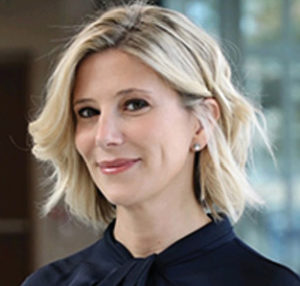Fairfield University”™s Marion Peckham Egan School of Nursing and Health Studies has expanded its course offerings with the introduction of a Master”™s Entry to Practice Nursing (MEPN) degree program.

The new program is designed for students with a non-nursing bachelor”™s degree to pursue a Master of Science in Nursing (MSN) degree in an accelerated format. At the completion of this program, students will be eligible to sit for the National Council Licensure Examination to become a registered nurse. The Connecticut State Board of Nurse Examiners recently approved the program, and Fairfield University is the first school in the state to make the MEPN degree available.
“It’s actually a newer type of nursing program,” explained Prof. Erica Wuchiski, the program”™s director. “They’re slowly emerging around the country. We don’t have too many of them in the northeast, but they are gaining in popularity and are proving to be successful.”
Prior to the creation of the MEPN program, students with a bachelor”™s degree in a subject other than nursing would need to get a second degree, a Bachelor of Science in Nursing (BSN), in order to proceed to graduate-level nursing studies. The MEPN program is a full-time endeavor covering 76 credit and 800 clinical hours that can be completed in 24 months.
“Instead of getting another bachelor’s degree, the MEPN includes graduate level courses simultaneously with the bachelor’s-level core nursing courses, and they graduate with a master’s degree as opposed to another bachelor’s degree,” Wuchiski said, adding that Fairfield University will still offer its BSN program. “That usually takes about three years to complete, whereas the MEPN takes two years to complete because it’s in such an accelerated format.
“But the education level is the same,” she added. “It’s the same faculty members teaching the courses. It’s just a matter of the commitment from the student and the level of effort that they are going to have to put in. This is just at a much faster pace, and these students are advised to not work and to have full support systems in place from their family because it’s very rigorous.”
Wuchiski acknowledged the MEPN will help expand the university”™s efforts to bring in students looking for nursing careers.
“We reach out to a new pool of candidates,” she said. “In some of my research, I found that people who might be interested in pursuing nursing as a second career felt that getting another bachelor’s degree was sort of a lateral educational move, as opposed to an advanced educational move. And, so, it deterred them from pursuing nursing as a second career.”
Furthermore, Wuchiski warned that demographic trends are pointing to problems in having adequate numbers of nursing professionals in the near future.
“The workforce is suffering right now because a lot of the baby boomers are reaching retirement age,” she said. “And people are living longer. We’re looking at an impending a nursing shortage coming up, so we really need more highly qualified nurses in the workforce that can guide the health care system in a strong capacity. The MEPN allows students to do that ”“ they graduate with the skills to not only work as a bedside nurse, but also to take on some leadership roles which are important and lacking in the health care industry.”



















